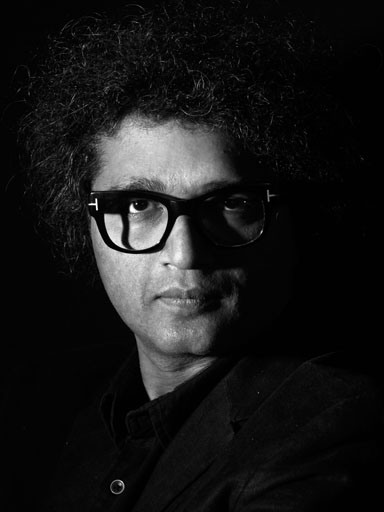It’s interview day with the Indian novelist Raj Kamal Jha, and time to cast an eye over The Indian Express, the newspaper of which he is chief editor. Amid news of the ICC Cricket World Cup, negotiations over the formation of government in Jammu and Kashmir, and thefts from churches in Delhi, there is the story of the 2002 massacre in Gujarat’s Sesan Nava village, where 14 people died and 34 were injured. The Indian Express speaks to Havribibi, a woman whose hands were hacked off by the mob, about how she feels now that those accused of the atrocity have been acquitted. The headline is “Justice denied”.
Havribibi’s account is fascinating, but what of the countless other stories that made up this sad episode in Indian history?
“We have always been inured to cold numbers,” says Jha. “But now the numbers seem colder; we live in a brutal 24/7 news cycle where nobody has the time or space to dwell on a story – and it means we miss the enormity of, say, 132 people dying in a bomb blast. We forget that each victim has an incredibly rich story until that last moment, and the heartbreak is multiplied by all the people they touched. It’s too hard for journalism, especially daily journalism, to do justice to the actual scale of the tragedy.”
It was with this mindset that Jha set about writing his first novel in eight years. “Writing fiction takes me to places where I can live with the story for longer than the newsroom allows,” he says.
Set in Delhi, She Will Build Him a City follows the lives of three people, simply called Woman, Man and Child. The mother, as she waits for her daughter to wake, unpicks a life pockmarked by grief and love. A young man’s life is corroded by guilt as he struggles to deal with the inequalities of modern India. And the child is an orphan with only the future to hold onto. Meanwhile, other characters from all walks of life drift in and out of the novel, which is both dreamlike and eye- openingly real.
“As soon as you step out of your home into any Indian city, you’re in many worlds, metaphorically and literally,” he says. “Five steps outside the entrance to the apartment building where I live, a man sleeps on the pavement. You go to a mall in South Delhi and across the road from world-class shopping facilities, you see poverty amid open drains. You see these different worlds, their inhabitants passing each other. I wanted the book to capture that.”
But She Will Build Him a City explores something more visceral than simple inequality, which, as Jha admits, can better be discussed in the opinion pages of his newspaper. The overwhelming emotion, particularly for the Man, is one of guilt at seeing homeless mothers and babies sleeping in giant, unused sewer pipes next to “garbage the size of a hill”. Although his story takes a darkly unpleasant twist, a small vestige of sympathy remains.
One of the most powerful moments in the book comes when Kalyani, a trainee nurse, realises she has tuberculosis and runs through her meagre options: “Each question shakes the house of dreams Kalyani has built for herself. she doesn’t know how long before it begins to crumble.”
“It’s interesting that you pick up on that line, because, yes, there is overwhelming despair in this book,” says Jha. “But then, each person has hope inside themselves somewhere. I find the idea of hope fascinating – it is the ultimate fiction. It’s something you construct inside your head. At the same time, it’s also very real. ”
Jha is keen that She Will Build Him a City not only be seen as a sociological study of New India. Instead, he’s aiming for something far more thoughtful and considered. “Honestly, it could be set in any emerging-market city. Maybe Abu Dhabi or Dubai,” he says. “I wrote it in Berlin. What I really hope people get from it is that in a city we all have stories that intersect, every day. What happens when those stories meet, and the make-up of the cities that people build for themselves in their heads and their hearts – that’s what I want to understand.”
